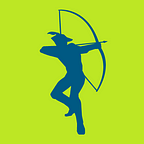A Recipe for Healing
Written By: Eugene Chow
Robin Setzer, 55, loves to cook. Her Christmas and Thanksgiving meals are legendary two-day feasts — no easy task when there can be as many as 60–70 guests including her 18 grandkids.
Fortunately for Robin, cooking and hosting are in her DNA. Her father was a chef and she grew up at his soul-food restaurant in Harlem. So when it comes to the kitchen, nothing seems to slow Robin down — not even her walker. But that wasn’t always the case.
After a bad car wreck, her love of food and hospitality were seriously put to the test. The crash set off a chain reaction that sent her health spiraling out of control.
The severe trauma of the collision left her blind and with severe pain in her back and legs. Unable to see and in constant agony, she was forced to quit her job at Children’s Aid Society, where she conducted home visits to ensure the safety of children, and go on disability.
From there, things began to cascade in a wild negative feedback loop. With limited mobility, she began to gain weight. Then she was diagnosed with diabetes and later pancreatitis, which exacerbated her diabetes and caused her to gain more weight, placing an even greater strain on her back and legs and her already impaired vision to decline further.
The constant pain took its toll.
“It got to the point where I didn’t care anymore,” Robin said. “I was just tired.”
Rather than wallowing when she hit rock bottom, Robin summoned every ounce of her willpower, courage, and determination. She forced herself to get out of the house and become active once more.
She began visiting Community Health Action of Staten Island (CHASI), a Robin Hood-funded non-profit that operates a food pantry and provides free health screenings, counseling, and connections to medical care for those struggling with poverty, addiction, or HIV/AIDS.
Unable to work and with only her disability checks to rely on, Robin needed a little help putting food on the table. At CHASI, she not only received food, but also critical medical care.
Despite the medication she was taking, her diabetes test at CHASI revealed her A1C level had risen to a dangerous high of 13. She returned to her doctor who prescribed new medication that helped bring her diabetes under control and she started to lose weight.
But Robin’s life didn’t really start to change until she began attending one of CHASI’s support groups aimed at helping individuals manage chronic pain. She shared her story and found others struggling as she was, and together they learned how to overcome the pain and lead healthier lives.
“The group gave me a sense of responsibility again,” Robin said. “They kept calling me just to check on me. They were there for me.”
The results were immediate and profound. Within a year, she had lost over 150 pounds. She regained her mobility, and now, no longer requires a walker. She is even off her pain medication.
Alicia Brown, the head of medical programs at CHASI’s food pantry, couldn’t be happier with how far Robin has come. “It’s amazing to get that kind of result. Now she’ll have many more years to be a grandparent.”
More than her health, Robin’s zest for life has returned and she now volunteers every day at CHASI, helping lead support groups, distributing food at their pantry, answering phones, and doing whatever she can to help.
“[CHASI] gave me so much and they don’t even realize it,” she said. “I know how I felt when I needed that support group — and it makes me feel good to know that I can give back.”
“If I weren’t able to come here anymore, it would hurt me so bad. I don’t know what I would do. I love everybody here so much. I just feel so amazing.”
Healthy once more, she is even able to keep up with her 2-year-old grandson.
“He keeps me active,” she said laughing.
CHASI had such a profound impact on Robin’s life that she urged her husband, Mikhail, to begin attending support groups with her.
Two-and-a-half years ago, Mikhail was viciously mugged. Two blows to the back of his neck severed his spine.
His recovery has been long and painful. Made more difficult by the fact that he cannot take pain medication due to its severe side-effects.
As an active man all his life — he served in the Army as a medic for 11 years, worked as a chef, and had a physically demanding job repairing restaurant equipment — the injury was particularly devastating.
Mikhail’s mobility has been severely hampered and is unable to work. He cannot walk without the assistance of a walker and requires frequent breaks. Pain is a constant, but he refuses to let it rule his life.
He began attending CHASI support groups with Robin and learned how to cope with the pain. The classes taught him techniques to focus his mind, ignore the pain, and prioritize the things he values most.
“My mobility is hampered, but I don’t dwell on it,” Mikhail said.
Instead, he volunteers at CHASI’s food pantry, unpacking boxes, stocking shelves, sitting in on support groups, and whatever else he can to help.
“Volunteering makes me feel better. It gives me the inspiration to keep on going and to take it to whatever level I can,” he said.
Looking ahead, Mikhail’s optimism is unwavering.
“I just take it one day at a time and keep slowly getting better. I may not run tomorrow, but I know one day I will.”
Community Health Action of Staten Island, a Robin Hood-funded organization, provides a variety of services to low-income New Yorkers including health care, drug counseling, and a food pantry.
Photography: Gabrielle Plucknette
